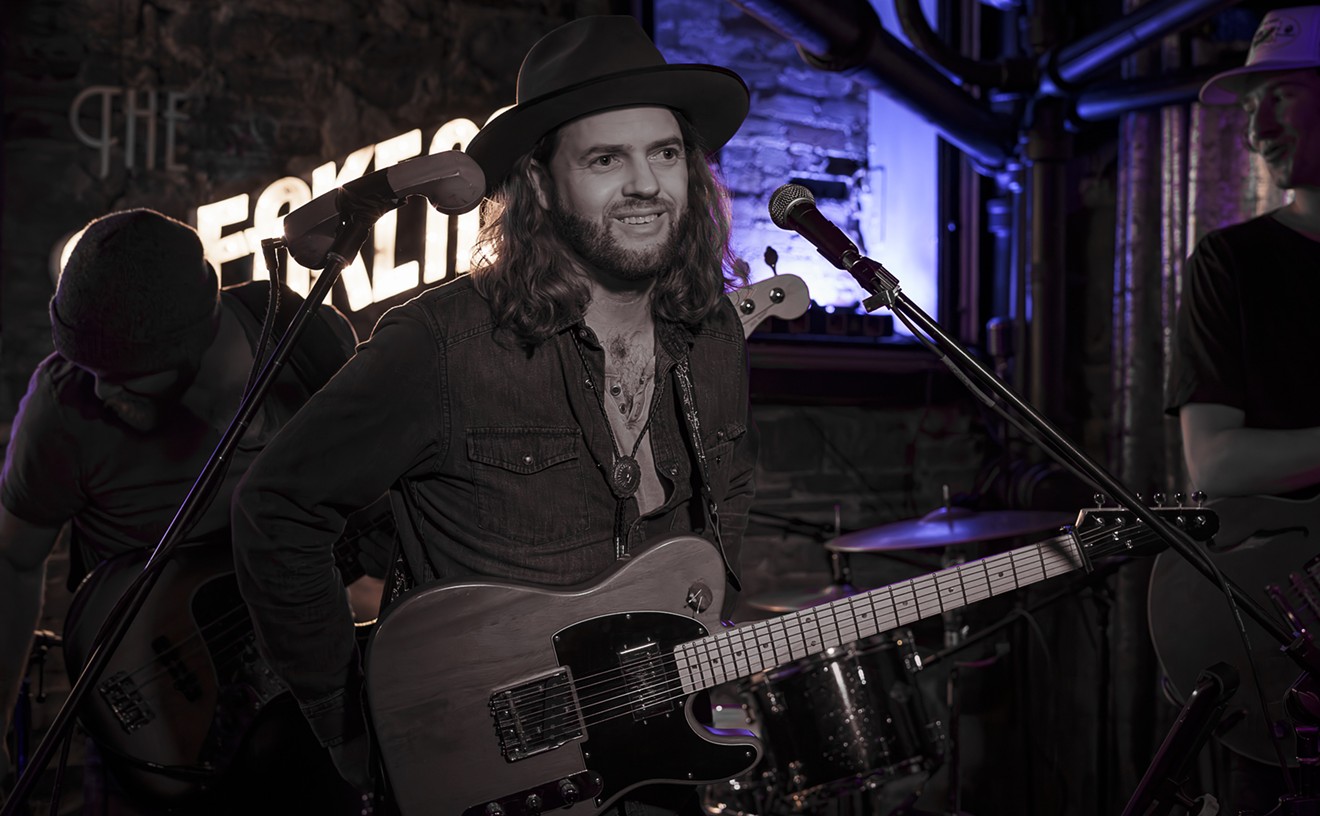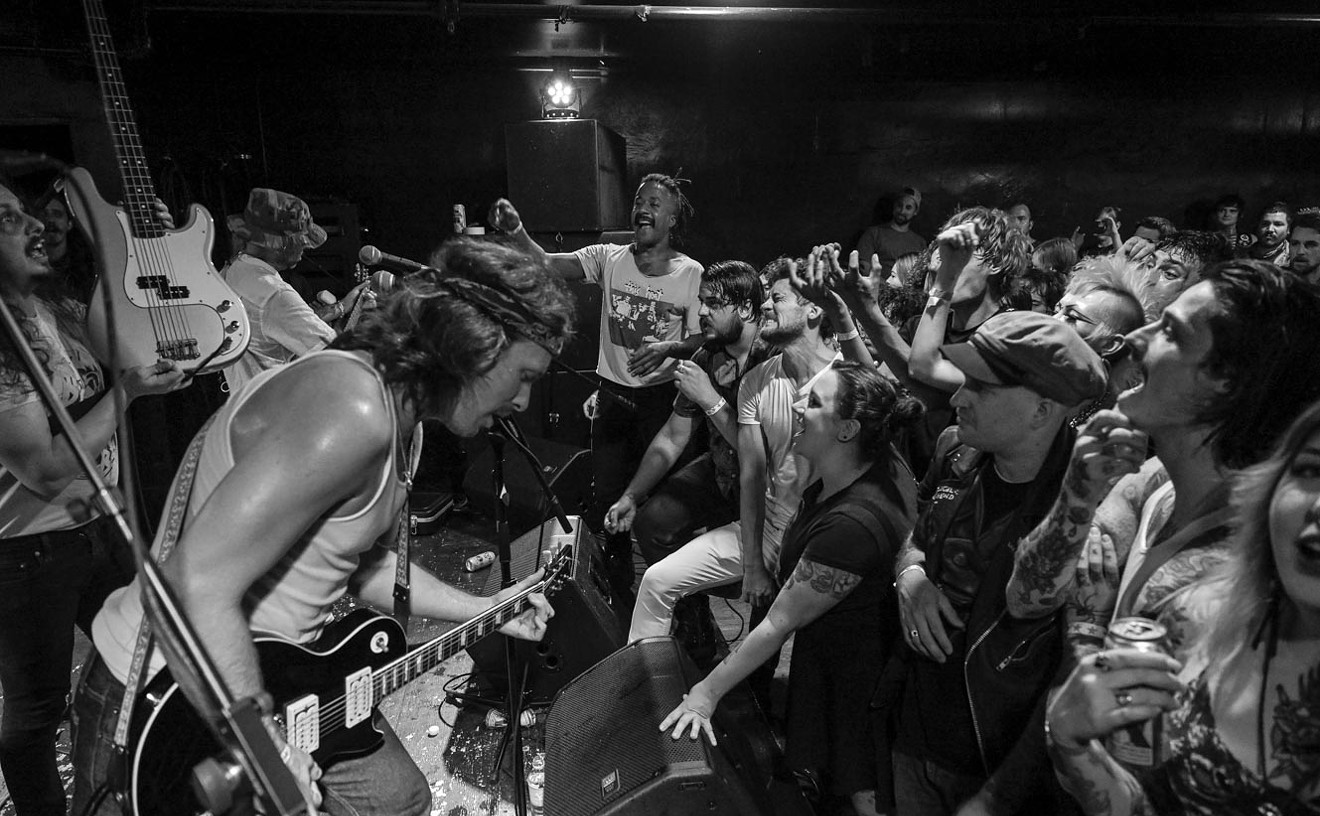Lately, friends on Facebook and In Real Life have been asking me to name songs I consider to be “perfect.” Not favorite or critically lauded or guilty-pleasure songs, but perfect songs. This is a tough question, changing at the whim of an ear, but many responses included pop songs, gilded by radio and the passage of time.
For me, over the past year, “Run Away With Me,” by Carly Rae Jepsen, has been my perfect song. There's no shortage of magic in the song's deranged-duck saxophone, its earnest romance, the sugar-rush bounce and the girl-chorus that feels somehow adult. No matter how grown-up you get, you still want to run away — it's just better with a partner and a passport.
Like every red-blooded American music critic, I've been fawning over Carly Rae Jepsen's album EMOTION for the past year, proclaiming that this gleaming '80s dream of a record would take her from “Call Me Maybe” Carly to artist and superstar. And you, like so many red-blooded American music fans, have ignored us.
Yet if you believe Jepsen, world dominance was never her goal. This week, in advance of her headlining show at the Gothic Theatre, she told me, “I don't know where I read it, because generally I try not to, but it said something like 'Carly Rae Jepsen doesn't know how to be famous,' and it was the biggest compliment.”
I wanted to ask Jepsen about being bad at being famous. I wanted to ask her about sexism in the music industry and her resistance to, or collusion with, star-molding Svengalis-that-be. I wanted to hear this embodiment of Canadian kawaii talk some shit.
But she wouldn't, so I didn't. Jepsen is down-to-earth, yet inaccessible. She peppered her answers with laughs and sung melody lines, and her voice on the phone is just as sparkling as it is on record. She remained excessively diplomatic: Despite calling out tabloid culture in her song “L.A. Hallucinations” and shying away from the scene, she said, “I like to have a private life that feels like it's mine. There's nothing wrong with wanting the opposite.”
Here are the random tidbits culled from our conversation: Her go-to karaoke jam is Ace of Base's “I Saw the Sign”; her boyfriend was visiting her and after our call they were about to go for a walk around Pike's Market in Seattle (of course they were); and the character she most appreciated on Full House (she recorded the theme song for the TV show's sequel Fuller House) was Kimmy Gibbler.
Jepsen has said that she wanted EMOTION to be an album of maturity and authenticity, so we stuck to talking about songwriting — and the conversation turned into a mini-episode of the Song Exploder podcast.
While she wouldn't cop to naming any song she thinks is “perfect” — “There can't be one song that checks all boxes at all moments...I take this question so seriously I can't even answer” — she did admit a debt to Cyndi Lauper.
“I remember when we saw Cyndi Lauper in Japan, and she was singing 'Girls Just Wanna Have Fun,'” Jepsen said. “I was thinking, 'Oh, there's something to this that's just so timeless and yet so perfectly '80s, yet relevant now. I love that it stood the test of time, and it's a banger that I would put out today if I had written it.”
When it comes to striving for timelessness in her own songcraft, Jepsen said, “That's always a thought in my career. The careers that I've always looked up to are the ones with longevity, the ability to not be a flash in the pan but to create lots of work over time, to develop and change as an artist as you go—that's the dream.”
Although the process, and at times the team of collaborators, is different for each song, Jepsen said, “I always revisit [a song]. Start from a place of initial inspiration and you'll get at a melody and a top line and some lyrics, and then you readjust it a couple weeks later.... You assess it and realize, 'Oh, my God, that bridge isn't where it needs to be, and it's not lifting the way I want, or, could we condense that rhythm and make it even snappier?' You challenge it until it feels right.”
As for “Run Away With Me,” the song required two separate trips to Sweden and several consecutive sleepless days and nights until it felt “cooked,” as Jepsen put it. So what was the key that needed to be turned to finish the song? “I think space is really vital. I had a chorus in place kind of where the bridge is now, but it wasn't right. We tried so many versions of 'Run Away With Me' before we landed. It's just that feeling, that rush of wanting to escape with your lover in the middle of the night and go travel around the world — you can't explain when the melody finally felt that way. But when it did, it was like, 'Ah, we got it.'”
So this song, which appears to be romantic impulse incarnate, is the result of arduous struggle?
“It's my favorite way to write,” Jepsen said. “I love the fact that it started from this really inspired place, and that the process is documented. My boyfriend was in town, and he's a videographer, so he documented some of the songwriting process. At that point we were just friends, and he was just this fly on the wall. You can see us with an acoustic guitar, singing 'body, body' and 'party, party'…. It's a fun thing to look back now and see how lost we were before we found it.”
Though she worked with a number of producers and collaborators, Jepsen asserted her centrality to the vision of the album: “I never show up to a session empty-handed. I generally have a vision or specific song I want to work on, or I have a bunch of ideas to pull from my pocket.”
It turns out that the most memorable gems in Jepsen's singles emerged from her back pocket. In the sugarnaut “Call Me Maybe,” the bridge offers unexpected depth — Before you came into my life/I missed you so bad — injecting eternal love into first-text flutters.
“Weirdly, with the 'Call Me Maybe' bridge, that was actually the first part of the song that was written,” Jepsen said. “I wrote it as a completely different song with a different melody, and it was written as a chorus. In the session, we were in the last day of production and didn't have a bridge, and I remembered that hook and thought, 'Oh, that would be kind of romantic here...but I had to sing a different melody to make it fit. So I sang it out, and that was that. A misplaced chorus plugged in.”
In a similar vein, the spoken interlude of “I Really Like You” — Who gave you eyes like that/Said you could keep 'em — turns the Mickey Mouse-serenade suddenly sexy.
“For 'I Really Like You,' we felt like it needed a spoken moment, and we were trying to find comedy because the song was so tongue-in-cheek and so purposefully on-the-nose adorable…. It wasn't written; they just threw me into the booth and said, 'Say some spoken things with melody to it.' It was maybe the third run-through that I was like [goofy, deep voice], 'Who gave you eyes like that' like a big hoke. And they loved it.”
As for the album's overall sexy-but-not-explicit vibe, Jepsen said, “There was a desire to have a sexual thread throughout the album. There was a song that I'm sort of sad didn't make the album and that might make a future one, called 'The One.' The hook line is [sings] 'If you want to, you can stay the night, but I don't want to be the one.' It was a very on-the-nose one-night-stand song. We didn't get it to the point where it needed to be, but I was excited about this very empowering idea of that being totally fine, and the woman taking power in that way and making boundaries. It felt like an unusual thing to hear a woman sing.”
While EMOTION is supremely cohesive and romantic, Jepsen said she didn't want every song to be “about a boy.” “That's what I hoped for with 'L.A. Hallucinations,'” she said, laughing, “but it ended up being about a boy anyway, so whatever.” The song, which starts I remember being naked/Young freaks just fresh to L.A., is far more narrative than the other tracks. “It does say, 'Take me into your arms again,' but in my mind that's me singing to the audience and to the world of 'realness' in general,” she said. “Getting out of this fake world I found myself in and back to the real deal again.”
I asked whether Jepsen gets a sense that her fans want more access to her personal life, or want for her to be more publicly vulnerable.
“I think I'm extremely vulnerable in my music. The heart of what's important — I share that,” Jepsen said. “What I'm wanting for people who are listening to the album is to hopefully make it part of their lives and their soundtrack and let it be about what's going on in your chaos and your story. The music I love becomes part of my life and becomes mine and feels like I wrote it. I want people who listen to the album to feel like it's theirs now, rather than a big story about me.”
Jepsen says all the right things, masterful at soft-power disarmament. And this deflection, it turns out, is essential to her art. Rather than function as the center of a pop solar system à la Beyonce or Taylor Swift, owning a brand or shaping a public biography, Jepsen seems to want to be a conduit for her listeners' universal experience. Therefore her music is deliberately generic, her swirling vocals a vortex of distilled, polished emotion. What the listener finds at center is not a sun, but a wormhole. An earworm-hole.
So how do you make a perfect pop song, like “Call Me Maybe” or “Run Away With Me”? Despite the “me” in the titles, the answer for Jepsen seems to be this: Absent yourself.
Carly Rae Jepsen performs Saturday, March 5, 8:30 p.m., at the Gothic Theatre.
[
{
"name": "Air - MediumRectangle - Inline Content - Mobile Display Size",
"component": "12017618",
"insertPoint": "2",
"requiredCountToDisplay": "2"
},{
"name": "Editor Picks",
"component": "17242653",
"insertPoint": "4",
"requiredCountToDisplay": "1"
},{
"name": "Inline Links",
"component": "18838239",
"insertPoint": "8th",
"startingPoint": 8,
"requiredCountToDisplay": "7",
"maxInsertions": 25
},{
"name": "Air - MediumRectangle - Combo - Inline Content",
"component": "17261320",
"insertPoint": "8th",
"startingPoint": 8,
"requiredCountToDisplay": "7",
"maxInsertions": 25
},{
"name": "Inline Links",
"component": "18838239",
"insertPoint": "8th",
"startingPoint": 12,
"requiredCountToDisplay": "11",
"maxInsertions": 25
},{
"name": "Air - Leaderboard Tower - Combo - Inline Content",
"component": "17261321",
"insertPoint": "8th",
"startingPoint": 12,
"requiredCountToDisplay": "11",
"maxInsertions": 25
}
]










